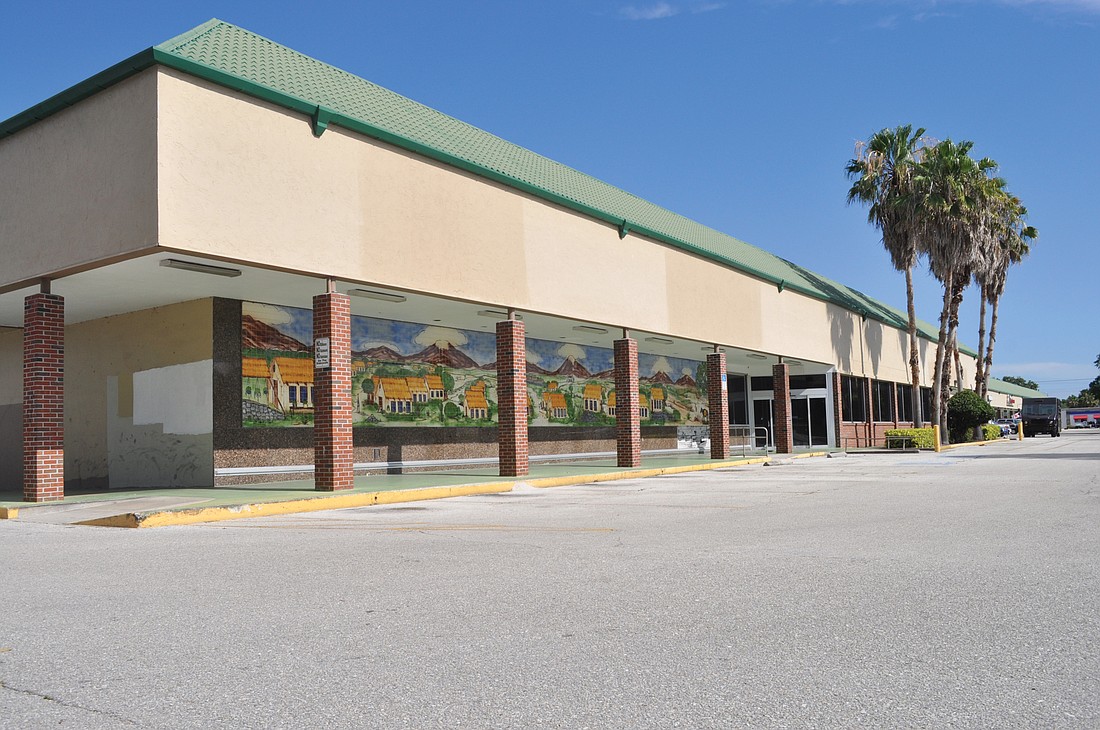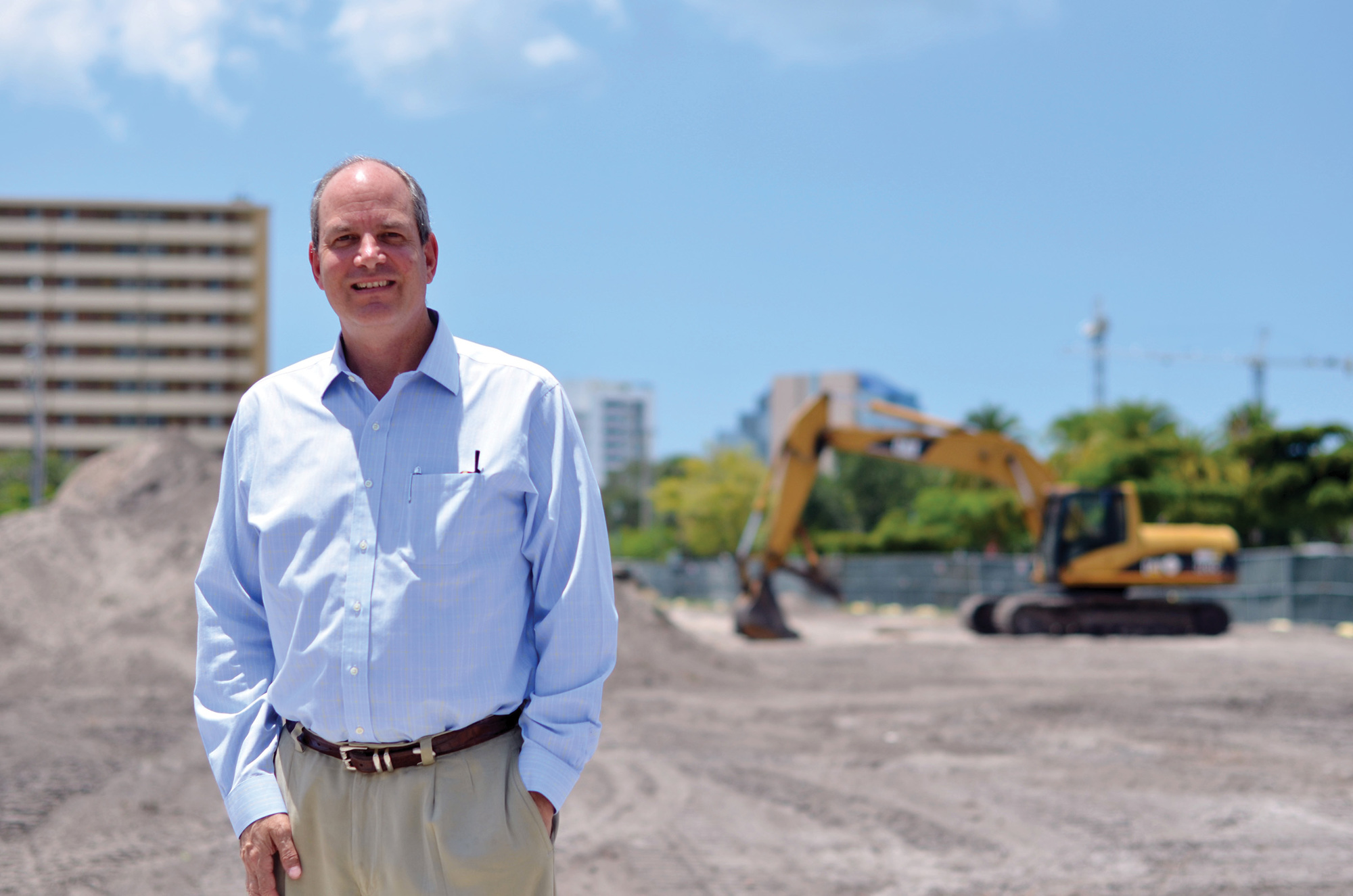- July 26, 2024
-
-
Loading

Loading

So the neighbors want the Ringling Shopping Center to become — and we quote from their Facebook page — “an urban village that emphasizes the public realm, walkability, mixed-uses, community, diversity and quality over quantity.”
Says urban village advocate Holly Dennis: “I’d like to be sensible about this. Let’s allow for a creative design process to occur, and not just throw up something and say, ‘Oh gee, we just put some more acne on our city.’”
Right on, you say to yourself. All that sounds wonderful.
Ok, fine. Then buy it.
And good luck figuring out how to have that “creative design process” and how to finance that dreamy walkable, diverse urban village.
Poor Louis Doyle, owner of the almost vacant Ringling Shopping Center, just east of downtown Sarasota and U.S. 301. Talk about a victim.
He is a victim. No matter how you look at it, Sarasota city government has unjustly — and we’ll say unlawfully — infringed on his use of his property and denied him the legal use and value of his property.
All because of a vocal minority of residents and weak city commissioners who clearly don’t understand or care about the nature of private property and property rights.
This has been a tragic fiasco of the first order, reminiscent of the battle Ron Burks endured when he tried to develop a condominium-retail-office project near the Alta Vista neighborhood.
Eventually, he gave up, exhausted after years of fighting the same anti-growth, anti-development forces in Alta Vista, who argue as if they are legally entitled to force a property owner to do what they want.
In Sarasota, often times it doesn’t matter what you own, or what city codes entitle you to do. Complainers trump ownership rights.
Louis Doyle is a perfect example. In spite of going through all of the city’s development processes two years ago and receiving approval from the planning board and strong recommendations in his favor from the city staff, the City Commission caved to neighborhood pressure to deny Doyle from taking on a mini-Walmart store as a tenant at the decaying Ringling Shopping Center.
He has been unable to move forward ever since — unclear of exactly what the city would allow to be developed on his site. All the while, with his store space vacant except for an Ace Hardware store, Doyle’s property has lost value and foregone lease revenue.
Were he to put his property up for sale, a prospective buyer would inquire: “What can I do here?” To which Doyle would respond: “No one knows.”
Why would anyone even think of buying that uncertainty? Clearly, that predicament has devalued Doyle’s property. And that is why he has filed a claim against the city, citing the Bert Harris Private Property Protection Act:
“When a specific action of a governmental entity has inordinately burdened an existing use of real property or a vested right to a specific use of real property, the property owner of that real property is entitled to relief, which may include compensation for the actual loss to the fair-market value of the real property caused by the action of government, as provided in this section.”
The city’s confusing actions — and its subsequent inaction — are hurting more than Doyle. A vacant, decaying property drags down the values of nearby properties and neighborhoods, which in turn costs the city lost sales-tax revenue and lower property-tax revenues.
City Attorney Robert Fournier believes there is little merit to Doyle’s Bert Harris claim. That is scary and concerning.
If you add Fournier’s perspective to the actions of the City Commission toward the Ringling Shopping Center and the “no Walmart” chant of the powerful, vocal minority, ordinary Sarasota property owners should be alarmed.
For one, unpredictable property rights and land-use decisions have a chilling effect on economic growth and cause the price of real estate to rise out of reach of average citizens. We see that already in Sarasota.
More important and more concerning is the body politic and citizens’ disregard for one of the fundamental tenets of American liberty: property ownership. Surely you shudder when you see a man’s property confiscated by the mob.

The claim that the Confederate flag is a symbol of racism, sadly, shows how far our culture and education system have let the rewriting of history veer from the truth.
When the Confederate states seceded from the Union, they did so not because of slavery. It was because the Northern states were subsidizing their public works with money raised from the tariffs on Southern states’ exports. Southern state leaders objected to this central-government confiscation. What’s more, when you read Jefferson Davis’ inaugural address as the president of the Confederacy, he makes no mention of slavery.
The Confederate flag was not a symbol defending a social injustice. It was economic — a symbol defending the right of free trade.

Just in case you missed it in last week’s edition, we’re reprinting a few comments from the Observer’s interview with Jay Tallman, one of the premier developers in Sarasota.
Tallman addresses that dirty word in Sarasota — density. Check it out:
For developers, how big of an incentive is the Rosemary density increase?
It’s’s pretty significant, and I think it’s a game-changer in terms of the economics and feasibility of going into that area. I think the developers are having to be pioneers, to a certain extent, going into the Rosemary District — though it certainly has a great deal of potential. I think all of us here in Sarasota recognize the potential, but there have been some challenges over recent years. This greatly improves the economics, and now we’re seeing the fruits of that effort.
What would you say to residents wary of any density increases in the city?
Actually, density — if handled properly — is a good thing for an area. It brings economic investment into an area, and that’s needed to turn an area around. There are many cities around the United States that will actually encourage density, because it can be more efficiently managed. We talk about urban sprawl — well, urban sprawl is oftentimes brought about as a result of an area where the government discourages density. It creates inefficiency in how you handle traffic, utilities. When we hear it said that growth doesn’t pay for itself and new development doesn’t pay for itself, that can be true if you’re dealing with low density and urban sprawl. But if you can concentrate density in key urban areas, it can actually be handled efficiently and bring important economic investment.

Dear Pope Francis:
Apparently, Your Eminence, you were denied an important part of education. Or maybe you didn’t pay attention or bother to read such luminaries as Smith, Bastiat, Von Mises, Hayek, Friedman or Rand. Perhaps that also explains the affection for the Castros and your singing the Hymn of Holy Climate Change.
If you had read any of the aforementioned authors — better yet, just look at the world’s conveniences and wealth — you would understand that no other “ism” in the world’s entire history has done more to protect the earth and raise people out of poverty than has the “ism” you constantly disdain — capitalism.
In business, there is a wise encyclical: Stick to your knitting. Stick to the 10 Commandments and the texts of Jesus.